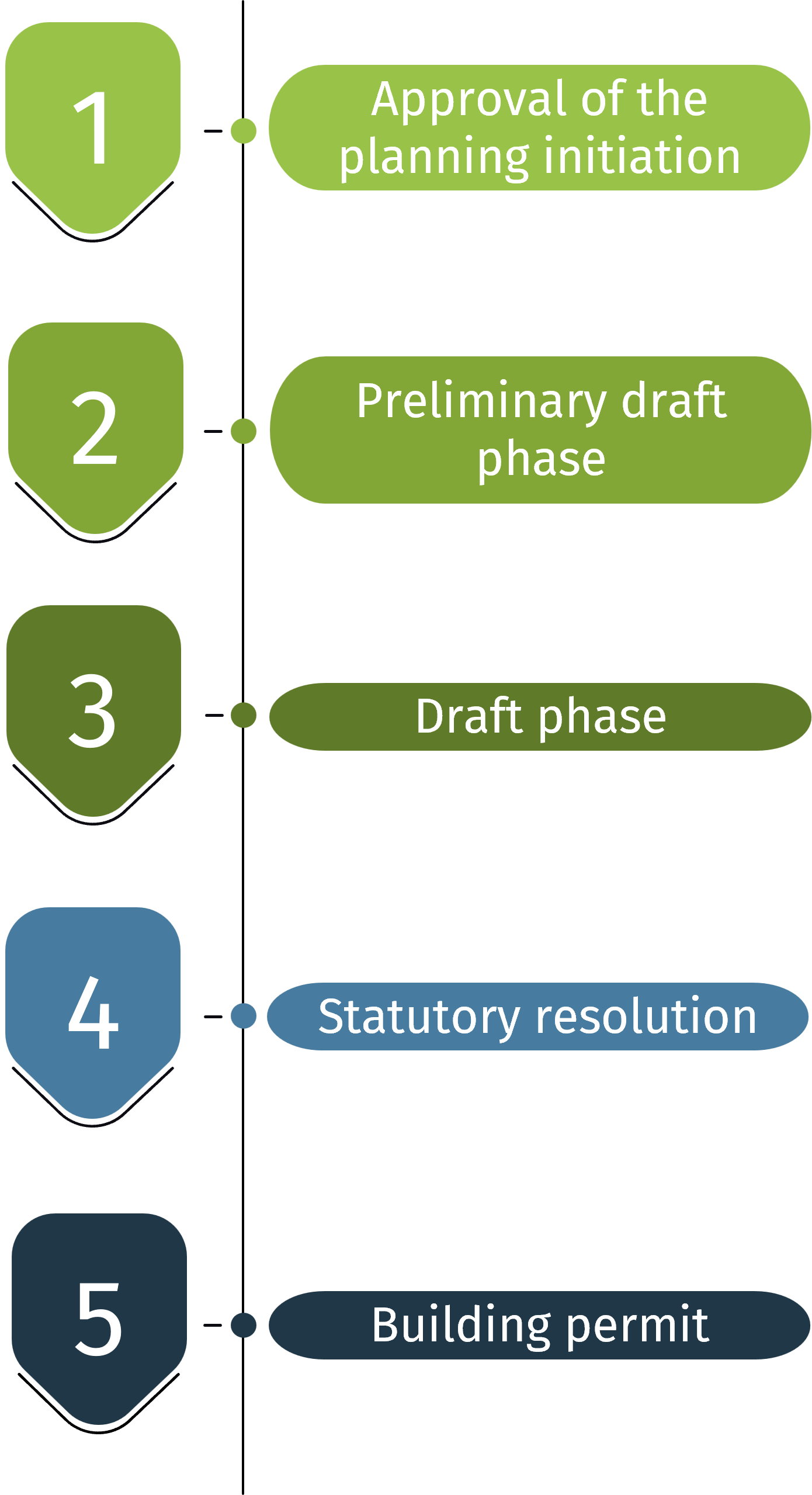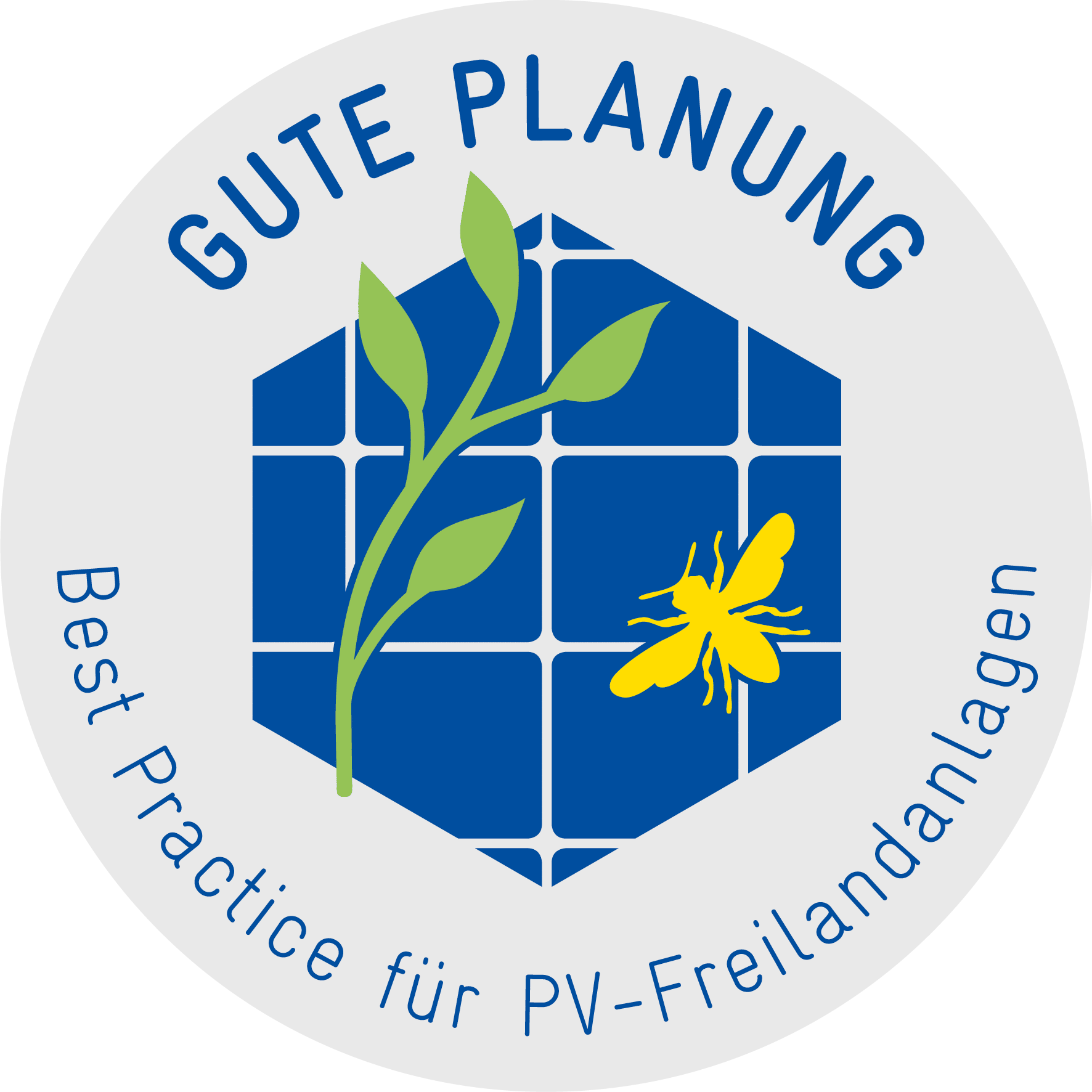OUR ProjeCTs
How we realise projects
Our expertise, our many years of experience and our deep-rooted regional understanding form the solid foundation for efficient project development. Every member of our team speaks the language of the various stakeholders, recognises their perspectives and takes their concerns seriously. With this bundled competence, we dedicate ourselves to diverse tasks on a daily basis and master challenges together: Starting with the identification of suitable areas and their safeguarding, through feasibility studies and grid connection planning, to early public participation and the approval process in close coordination with the relevant authorities and agencies.
Our approach aims to develop well-thought-out solutions that are compatible with nature conservation and species preservation as well as community interests.
Scheme of the land-use planning procedure


1. Approval of the Planning Initiation
After receiving positive feedback from the municipality on the project, we initiate the application for planning approval. This resolution forms the basis for the joint development of the PV system. The municipal council generally decides to draw up a development plan that includes at least the planning objective and often also includes initial planning considerations.
2. Preliminary Draft Phase
During this phase, the preliminary draft of the plan drawing and the associated explanatory memorandum are prepared. At the same time, mandatory environmental reports by environmental and other expert opinions are commissioned. The phase ends with the early involvement of public agencies and the public itself.
3. Draft Phase
Any comments received during early participation are taken into account and integrated into the preliminary draft. The resulting draft will be resubmitted to the public and public organisations to take potential comments into account.
4. Statutory Resolution
Once all comments have been weighed up and expert opinions integrated, the bylaws are finalised. The development plan becomes legally binding as soon as the municipality has passed the corresponding resolution and published it in due time.
5. Building Permit
Once the land-use planning procedure has been successfully completed, a planning application is submitted to the relevant authorities. The approval of this building application enables the realisation of the PV project.
Sustainability in our projects – bne Gute Planung
Fair and equal dialogue with all project partners is of vital importance to us.
We understand that the successful expansion of solar energy depends to a large extent on the acceptance of communities, citizens and landowners as well as an environmentally and nature-friendly overall concept on site.
We therefore go beyond regulatory requirements when developing our solar projects. One example of this, among other things, is our voluntary participation in and application of the “Good planning of ground-mounted PV systems” standards of the German Association of the New Energy Economy (bne).
The “bne voluntary commitment” supported by East Energy contains:
- Commitments to municipalities, administration and citizens
- Commitments to farmers and land utilisation
- Commitments to integrate a photovoltaic system into the landscape
- Commitments to increase biodiversity
- Further obligations (planning, realisation, technology)
An insight into our project world
Our mission is characterised by transparency and trust – towards our valued customers, partner companies, committed citizens and the responsible authorities. These core values form the foundation of our work and are the basis for broad acceptance of our vision.
In our virtual project exhibition below, you can see some of our current projects. We want to show you how we are shaping a sustainable energy future step by step – project by project. If you still find yourself with questions about our work, don’t hesitate to reach out here.
PV plant Sabel
Rostock, Mecklenburg-Vorpommern
Planned size of the project area: 63 ha
Planned production: 25 MWp
PV plant Sabel II
Rostock, Mecklenburg-Vorpommern
Planned size of the project area: 40 ha
Planned production: 46 MWp



